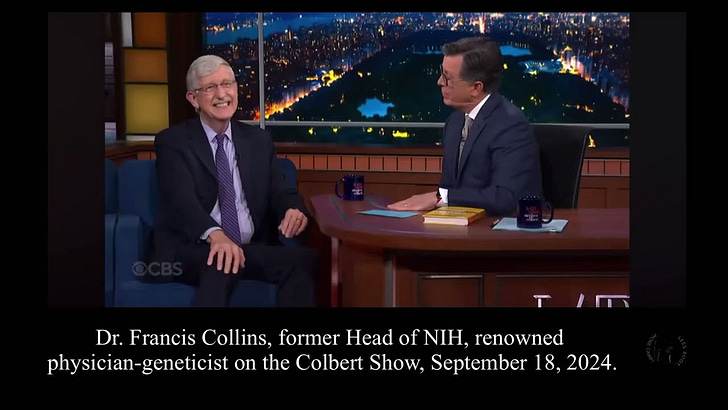A Wave Of Hope
Yes, there are good things happening out there. We should pay attention to them.
Hi all.
First, PSA: This Substack will change over the next few months. I will write about them soon, but expect the name to change and the focus to shift slightly. There will be more personal posts, broader policy discussion, and widening topics. It will still mainly be about music - don’t worry about that - but I hope it will be more engaging and provocative. Until then, a brief interlude of positivity…
Today is the day after the so-called Liberation Day, when the reality TV production company turned US government announced a wave of tariffs to upend global trade. I am a staunch multilateralist. I believe that local people should always make local decisions. Still, the more we engage with people with different beliefs or backgrounds, the more we learn about ourselves, and better decisions will be made. I also believe what’s good for the majority is most often the best course of action, which I know is antithetical to those in power in many administrations worldwide. Yes, I am in the minority here, and I’m not naive - my beliefs come from a place of privilege. I have a roof over my head, food in the fridge, and the benefit of being an English-speaking white, cisgender male. I also recognize that the type of multilateralism promoted over the past few decades has not delivered what it should have, but these ‘country-first’ policies - and their impacts - won’t be any better.
I want to maintain a calm and pragmatic head, as much as possible, and to do so, I’ve realized that all I can do is focus on what I can control. One thing that is the same today as it was yesterday is that we all gain far more by focusing on what brings us together rather than what tears us apart. So I wanted to share some uplifting stories about work being done, right now, around the world that is using music - one of the most powerful tools we have to bring us together - that is improving lives on the ground. I thought it’d be good to share a few examples of what gives me hope.
Music Influencing Agrifarming in Uganda - An Example for Everyone? - One of the most astounding new venues in the world is at the Bidi Bidi refugee camp in Uganda, which is now one of the world’s biggest (250,000 live there!). Designed by Hassell and Arup, it is genuinely state-of-the-art. However, the venue is only one aspect of this story. In partnership with global charity Playing for Change, a local-led nonprofit, Sina Loketa, created a music and arts program (called Salam) that has seen 25,000 participants pass through and the development of a first-of-its-kind recording studio. It’s been so successful that those who led the music program were asked to support the settlement’s agriculture and water distribution structures, as well as lead a prevention of sexual abuse program. It started with a music program from a music charity. Now, infrastructure that should be available to everyone, everywhere, is being delivered. Here, the power of music to solve non-music problems is on display. Have a look - https://playingforchange.org/our-work-in-northern-uganda/.
Expanding Music Cities Network: In 2016, we (Sound Diplomacy) created the Music Cities Network with colleagues from the Hamburg Music Business Association. The aim was to bring cities together to engage with each other, share best practices, and facilitate cross-border trade. Fast forward nearly 10 years, and the network is as popular as ever. Last year, Valencia, Aalborg, and Sunderland joined, bringing the total number of city participants to 16. This is one of many networks of cities and places that take music and cultural economic development seriously (there are others for the night time economy, broader culture, downtown districts, and one CME runs for remote and rural communities). Despite political upheaval, the network is growing. This should be celebrated.
Music Is Growing As An Industry In The Places It Can Most Impact: The latest IFPI report outlined that while the value of recorded music grew by only 2.1% in the US and Canada and 8.3% in Europe, its growth in the Middle East and Africa was significant—22.8% and 22.6%, respectively. This corresponds to demographic change. These markets are some of the world’s youngest and clearly, they are hungry for music (homegrown and international). This demonstrates the urgency in addressing global copyright inefficiencies and seriously investing in music as an economic development asset.
Music Is Becoming A Proven Healthcare Tool: I’m unsure if you saw Dr. Francis Collins (who helped synthesize the human genome) talk about the potential for music as a therapeutic on The Late Show a few months ago. To those working in the sector, this is obvious. Seeing it platformed as such was encouraging. There are multitudes of research demonstrating music's potential impact on various conditions—physical and mental. We’ve barely scratched the surface of the power of music here. This gives me hope.
I hope this brief interlude provides examples of reasons to be cheerful, despite what the newscycle says. Music can help address and solve big problems. It can be a tool to save the world. Let’s not forget that.
Now, a musical coda (in honour of the brilliant
). The brilliant Kuti family at the Global Citizen Festival a few years back.
More soon. Thanks for reading, as always.
PS: I want to share this report again, which I co-wrote with music industry economist Will Page. It outlines the potential economic benefits of capitalising on point 3. It’s worth reading.





Such a great post. Incredibly helpful for my frazzled American brain. Thanks for what you do! 💛